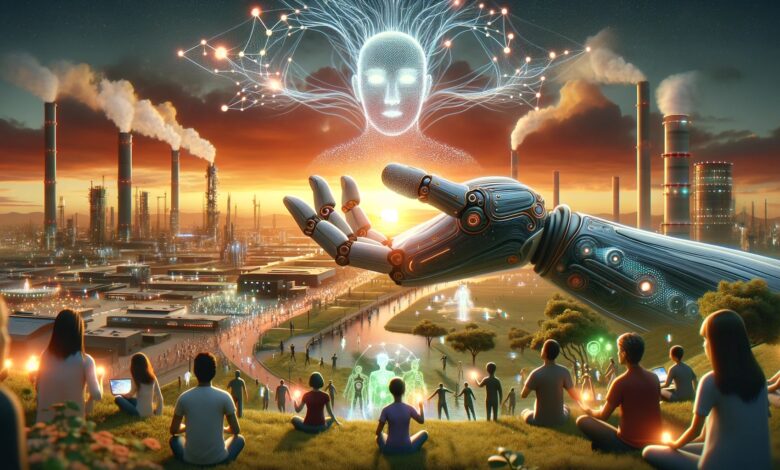
Imagine a world where supply chains hum with the precision of clockwork, marketing campaigns whisper personalized messages into our ears, and robots churn out content that rivals the wit of Hemingway. This isn’t some fantastical sci-fi flick; it’s the dawn of the AI era, and its tentacles are already weaving their way into the fabric of every industry.
For businesses, the allure of AI is undeniable. It promises efficiency, innovation, and a competitive edge sharper than a diamond. But in the rush to embrace this technological marvel, it’s crucial not to lose sight of the human element, the ethical considerations that dance alongside the algorithms. This is the tightrope walk of our time: harnessing the power of AI while safeguarding our values, our privacy, and ultimately, our humanity.
Take, for instance, the world of marketing. AI can craft personalized ads, predict buying habits, and even write captivating copy. But with such power comes the responsibility to use it responsibly. Imagine AI robots churning out fake news articles, manipulating consumer behavior, or preying on vulnerabilities. The potential for ethical landmines is vast.
AI-as-a-Service
This is where the concept of “AI-as-a-service” comes in, and platforms like Sureel.ai are leading the charge. Sureel’s revolutionary technology not only ensures efficiency and creativity but also prioritizes source attribution, legal compliance, and ethical content generation. Imagine generating captivating product marketing images all while being confident that your content respects copyright, protects artists, and empowers transparency. Like a digital Michelangelo, Sureel.ai paints a canvas of innovation, but its brushstrokes are guided by ethical principles.
But the responsibility doesn’t stop at the technical level. Leaders must set the tone by establishing ethical frameworks for AI adoption. As Eliezer Yudkowsky aptly warned, “If we don’t develop ethics for artificial intelligence, then we risk developing intelligent weapons with very dangerous ethics.” We cannot afford to let technical brilliance outpace our ethical considerations. Heeding Yudkowsky’s urgent call, leaders must prioritize responsible innovation, fostering a culture of transparency where algorithms aren’t shrouded in secrecy but openly discussed and understood. This commitment to ethical AI not only minimizes risk but also builds trust with employees, fosters brand reputation, and ensures compliance, ultimately attracting and retaining top talent.
Human-Machine Partnership
The human-machine partnership is the heart of the AI revolution. The future belongs not to the robots alone, but to the teams who can seamlessly blend their unique strengths. Human creativity will guide AI’s development, while AI’s efficiency will empower humans to reach new heights. It’s a symbiotic dance, a tango between silicon and soul.
This isn’t about replacing humans with robots; it’s about augmenting our capabilities, and unlocking our full potential. AI can handle repetitive tasks, freeing us up to focus on the things that truly matter: creativity, critical thinking, and the kind of emotional intelligence that machines can only dream of.
The future of business, then, is not a binary choice between analytics and intuition. It’s about harmonizing them, creating a world where technology enhances, rather than constrains, the human experience. By embracing ethical AI, businesses can not only thrive in this new landscape, but also contribute to a future where progress is measured not just by profit margins, but by the well-being of our communities and the planet we share.
So, let us not fear the rise of the machines, but embrace the human-AI revolution. Let us be the architects of a world where technology serves humanity, where ethics and innovation dance hand-in-hand, and where the future is not a dystopian nightmare, but a vibrant symphony of progress, guided by the wisdom of our hearts and the power of our minds.



